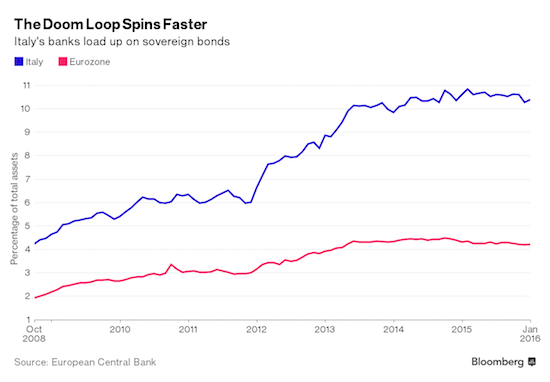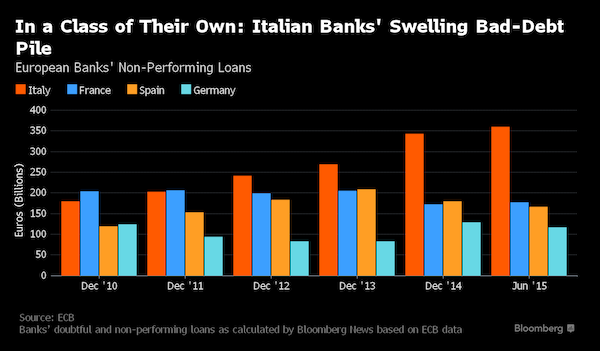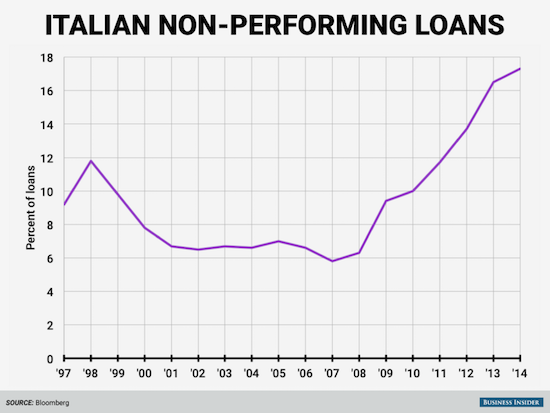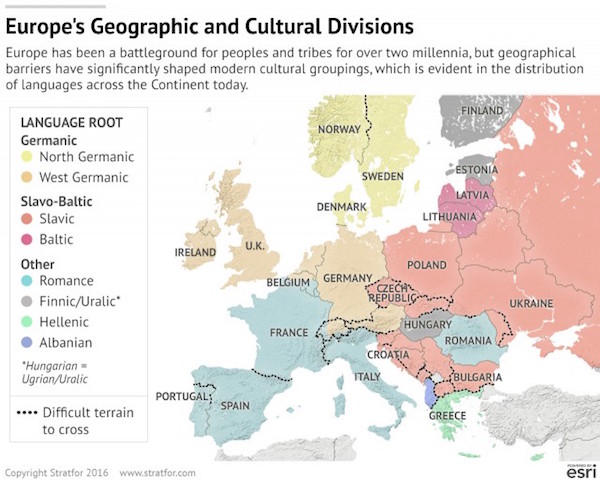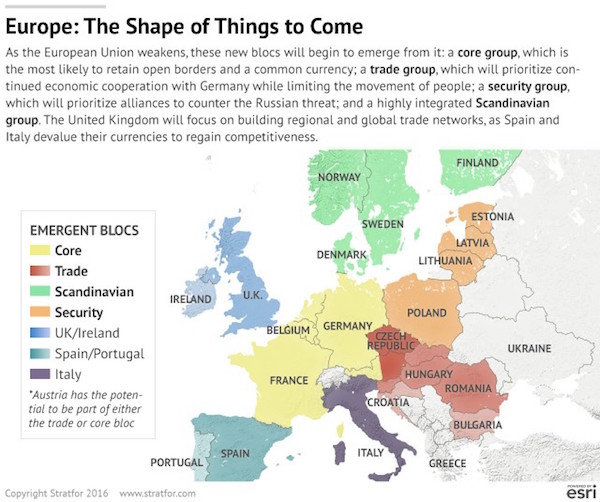
Fresco from the Minoan Palace in Knossos, Crete, Greece. 16th century B C.

Probably the best description of Charlie Kirk I've ever heard.
Damn I'm gonna miss that dude! pic.twitter.com/a3EwzjRik5
— SaltyGoat (@SaltyGoat17) September 12, 2025
Charlie Kirk’s Death Exposed the Biggest Scam in History.
Video by: Chase Hughes (@NCIUniversity) pic.twitter.com/F6FJ1QQTYl
— 𝙰𝚊𝚗𝚘𝚗 (@AAnon55) September 13, 2025
Nicole Shanahan just got emotional speaking about Charlie Kirk.
She said losing him feels like this generation’s JFK moment.
“How liberals described Charlie Kirk is so wrong.”
“This changed a lot for me.”
“You have to actually be willfully full of demonic hate to cheer for… pic.twitter.com/IfXNOXoVNC
— End Tribalism in Politics (@EndTribalism) September 12, 2025
Why did people think they could cheer Charlie Kirk’s murder without consequences?@ScottAdamsSays “I think they were all surprised, which means they’ve been living entirely within a bubble in which they thought other people would agree with that.” pic.twitter.com/MVknIj5CkD
— jay plemons (@jayplemons) September 12, 2025
https://twitter.com/iAnonPatriot/status/1966709017943605415
BEAUTIFUL: Greg Gutfeld's monologue was fully dedicated to honoring Charlie Kirk
"THIS SHALL BACKFIRE. Look at the history at those murdered because they were good. MLK Jr's dream did NOT die with him, or JFK's or Lincoln's… Their legacy grows. And Charlie's will too. Beyond… pic.twitter.com/pjYRxBFJiT
— Nick Sortor (@nicksortor) September 13, 2025
I had the honor of interviewing Charlie Kirk. Listen to his succinct, intelligent answer to "What is conservatism?" At the time, he was only 30 but already spoke like a future President. pic.twitter.com/mbMwcJel93
— Dr. Drew (@drdrew) September 12, 2025
Charlie was brilliant, I’ll be doing this from now on as well. pic.twitter.com/lTMTgMUjWw
— Matt Couch (@RealMattCouch) September 13, 2025


The deep deep confusion that emanates from so much here, has, don’t lose sight, all been conditioned. It doesn’t come from a natural process.
• FBI Questioned ‘Transgender Partner’ of Charlie Kirk’s Alleged Assassin (RT)
Federal investigators have questioned the roommate of Tyler Robinson, 22, who is accused of assassinating conservative activist Charlie Kirk, according to multiple US media reports on Saturday. Senior FBI officials told Fox News that Robinson had been in a “romantic relationship” with a person transitioning from male to female, with whom he shared an apartment in St. George, Utah. The individual is said to be “extremely cooperative” with the authorities and is not accused of any crime in connection with the killing. Public records reviewed by the New York Post linked Robinson to Lance Twiggs, 22, who lived at the same address. A relative confirmed that Twiggs was Robinson’s roommate, while declining to comment on their relationship.
The FBI is now sifting through “a mountain of evidence” that includes communications between Robinson and Twiggs, as well as “every connection, every group, every link and anyone tied” to the shooting. Investigators say text messages and Discord chats recovered from the pair’s devices provided key leads, including references to a rifle wrapped in a towel and hidden near Utah Valley University, where Kirk was gunned down on Wednesday. Police recovered a Mauser .30 caliber bolt-action rifle and ammunition engraved with slogans such as “Hey fascist! Catch!” and a reference to the WWII-era Italian anti-fascist song ‘Bella Ciao’. Another casing bore a meme from furry culture, while one read: “If you read this you are gay lmao.”
Axios, citing six sources familiar with the probe, reported that investigators are exploring whether Robinson was motivated by anger at Kirk’s criticism of the “LGBTQ agenda” and gender transition procedures. One source said the roommate was “aghast” at the news of the killing and promptly handed over messages from Robinson. Utah Governor Spencer Cox has described Robinson as “deeply indoctrinated with leftist ideology,” though his family has insisted they are lifelong Republicans. The FBI has not publicly confirmed a motive but said it is reviewing evidence at Quantico and pursuing “every connection, every group, every link” related to the case. Kirk, 31, the founder of Turning Point USA, was fatally shot in the neck while addressing students in Orem, Utah. Robinson was arrested on Friday after his father recognized him in surveillance footage and persuaded him to surrender.
Do they have to scream it from the rooftops? pic.twitter.com/D3RLahjtfq
— Andy Ngo (@MrAndyNgo) August 29, 2025

They had surveillance video, cut stills from that, and immediatedly sent those out everywhere. In no time, he was recognized.
• Kash Patel’s Bold Move Cracked the Case of Charlie Kirk’s Assassin (Margolis)
The conservative movement lost one of its brightest voices with the assassination of Charlie Kirk at Utah Valley University, but FBI Director Kash Patel’s swift and decisive response delivered justice in a remarkable 33 hours that should serve as a blueprint for law enforcement nationwide. Unlike the bureaucratic foot-dragging we’ve grown accustomed to from federal agencies, Patel personally flew to Utah and took command of the investigation with the kind of hands-on leadership that actually gets results. While career FBI officials likely cringed at his unconventional approach, Patel understood something his predecessors never grasped: When American patriots are under attack, you move heaven and earth to catch the killers. “I am very proud of the FBI,” Trump told Fox News Digital. “Kash—and everyone else—they have done a great job.”
The timeline tells the story. On Sept. 10, surveillance cameras captured 22-year-old Tyler Robinson casing the Utah Valley University campus that morning before returning with deadly intent. He positioned himself on a rooftop with a high-powered bolt-action rifle and waited for Kirk to take the stage. After firing the fatal shot, Robinson fled into nearby woods, likely believing he had pulled off the perfect political assassination. He was wrong. Patel immediately marshaled the full resources of the federal government, shipping DNA evidence, fingerprints, and the recovered murder weapon to FBI Quantico and partner labs for overnight analysis.
Patel personally directed agents as they processed evidence and prepared to send it to Quantico, ATF labs, or local labs. Sources told Fox News Digital that Patel then directed the evidence to be loaded onto a plane with initial forensics and evidence collected and sent it back to the FBI labs for processing. A law enforcement source told Fox News Digital that, typically, when evidence is collected in an investigation, an agent ships it to the labs. But the source said Patel directed that the evidence and fingerprints be sent back to Quantico via plane—traveling back and forth from Utah collecting and delivering evidence.
But here’s where Patel broke from standard FBI protocol in the best possible way: against all recommendations from his own people, he demanded the immediate public release of surveillance footage showing the suspect. That cracked the case wide open. Within hours, the bureau had released crystal-clear images of Robinson, surveillance video of his movements, and offered a substantial reward. The media blitz worked exactly as Patel intended—Robinson’s own family recognized him from the footage and contacted authorities.
Kash Patel just showed the country what real leadership in law enforcement looks like. Earlier this year, Democrats tried desperately to thwart his confirmation, but Patel didn’t just survive their political attacks—he proved that he was the leader the FBI desperately need. He took command personally, ignored the bureaucratic naysayers, and moved fast to deliver justice for Charlie Kirk. In doing so, he proved that competence, guts, and decisive action beat bureaucratic foot-dragging every time.

“..gentle courage..”
• The Lion, the Witch, & Charlie Kirk (Jamie K. Wilson)
When I read — and saw — that people were literally singing and dancing because Charlie Kirk was murdered, my mind leapt instantly to C.S. Lewis’s The Lion, the Witch, and the Wardrobe. In that story, the great and pure Lion Aslan gives himself up to die in place of a guilty boy. The White Witch ties him down on a stone table, shaves away his mane, mocks him, and finally kills him while her goblins and hags dance, shriek, and celebrate. They reveled in cruelty, mistaking the death of the innocent and good for triumph.
Lewis knew exactly what he was showing. The Witch is not just a fairy-tale villain; she is the embodiment of tyranny itself. She represents the kind of power that justifies cruelty with claims of righteousness, that dresses malice up as justice. Her followers delight in the humiliation of others, believing their mockery to be strength. It is the spirit of every regime or ideology that exults when its enemies are silenced. When we see people celebrating Charlie Kirk’s death, we are seeing the Witch’s camp in our own world — faces twisted with glee at what they think is victory, blind to the corruption they reveal. Charlie Kirk’s death carries a painful echo of that scene. Aslan was hated not because he had done great wrong, but because his very presence threatened the Witch’s rule. His goodness exposed her corruption, his authority undermined her lies, and his love for the weak freed them from her grip.

In the same way, Kirk was despised not for crimes, but because he spoke truth in a world built on falsehoods. The worst he ever did was hurt some feelings, defeat bad arguments, or bruise an ego in debate. He never exulted in victory, never sought the humiliation of his opponents. His “crime” was living and speaking in a way that revealed the hollowness of his enemies’ power; his authority was in his superior arguments that destroyed the lies of the left. There is one big difference. Aslan deliberately laid himself down at the Stone Table; Kirk did not choose death. Yet he lived with awareness of the risk. He knew that speaking truth in an age of lies was dangerous, and he accepted that danger in order to help others. His martyrdom was not sought, but it bears the same witness: that truth is worth the cost.
And as in Narnia, the rejoicing of evil will not last. Lewis wrote that there was a “deeper magic from before the dawn of time” that the Witch could not comprehend. Her triumph was hollow, her shrieking laughter already the prelude to defeat. So it is now. The songs and dances of those who gloat over the death of the good are not signs of victory, but evidence that they have allied themselves with corruption. The deeper truth remains: evil always overreaches, and truth — like the deeper magic — outlasts death. We are already seeing the deeper magic at work. In the wake of his death, Turning Point USA has been flooded with applications from colleges and high schools eager to start new chapters. Around the world, people are mourning Charlie Kirk but also celebrating his life as a champion of free speech and gentle courage.
His wife, with remarkable strength, has vowed to continue his work — her words stirring millions with hope and resolve. And many are saying openly that with Kirk’s death, ten million Charlie Kirks will rise in his place. Unlike previous similar situations, as the masks slip and employees revel in Kirk’s murder, employers are recoiling — either in horror or from fear of the damage their businesses could suffer. Everywhere, teachers and nurses and professors who have exposed their goblin hearts are being fired. Professional organizations are stripping away licenses. And the former revelers, confused, are returning to the Internet to bemoan their fates. Evil revealed itself, and the world is answering — not with despair, but with resolve.
The Allegory Made Flesh
Narnia was written as a supposal — as Lewis put it — his way of asking what it would look like if Christ entered another world to show His love for the Sons of Adam and the Daughters of Eve. That is why the echoes ring so strongly today. What Lewis cast in myth we are now seeing in flesh and blood: truth hated, goodness mocked, evil celebrating what it thinks is victory. The deeper magic still holds. And as long as we remember it, we know that evil’s triumphs are only temporary, and that love, truth, and courage will rise again.

Expect lots of action. USAID x 1,000.
• Stephen Miller Declares War On Far-Left NGOs (ZH)
The Trump administration is finally getting serious about radical left groups, including dark-money, billionaire-funded NGOs that openly call for the destruction of capitalism and the Western world. These groups, together with rogue far-left politicians, spread dangerous rhetoric amplified by globalist corporate media outlets, pouring toxic cocktails for liberal, educated people, indoctrinated in progressive schools, who believe anyone with a dissenting opinion is a “Nazi,” “fascist,” or “racist.” Democrats have become the party of hate and violence, and their left-wing NGO network and leftist echo chambers on popular websites and social media channels are driving some of this political violence.
These leftist groups have waged nonstop color revolution operations against the administration, brainwashed an entire generation in schools, and pushed destructive, nation-killing progressive policies (criminal justice reform) that have transformed some of America’s cities into, as Trump puts it, “hellholes.” They supported an open border that resulted in the greatest land invasion ever, flooding tens of millions of third-worlders into this nation. It’s as if these groups, some funded by rogue billionaires outside the U.S., such as in Communist China , want to see the destruction of the U.S. by sowing social instability in what appears to be irregular warfare. White House deputy chief of staff Stephen Miller spoke on Fox News’ Hannity last night to outline the severity of radical leftists waging an all-out assault on this nation.
“These radicalized people – there is a domestic terrorism movement in this country,” Miller warned on the Hannity show last night. In fact, Miller should’ve used the word “civil terrorism,” as we explained before, to more accurately describe what’s unfolding. Miller continued, “The last message that Charlie Kirk gave to me before he joined his creator in heaven was that he said, we have to dismantle and take on the radical left organizations in this country that are fomenting violence.” “And we are going to do that. Under President Trump’s leadership. It could be a RICO charge. It could be a conspiracy charge. Conspiracy against the United States, insurrection… We are going to do what it takes to dismantle the organizations and entities that are fomenting riots, doxxing, that are trying to inspire terrorism and committing acts of violence,” he explained.
Miller ended with this, “You want us to live in fear. We will not live in fear. You will live in exile. The power of law enforcement under President Trump’s leadership will be used to find you, take away your money, power, and freedom if you break the law.”
https://twitter.com/RapidResponse47/status/1966703759737647439

Try calling Trump a nazi now.
• Pelosi: Democrats “Won’t Be Responsible” For Years Of Violent Rhetoric (ZH)
For the past decade, Democrats at the highest levels have screamed that President Trump – and every single person they disagree with – is a “fascist,” “racist,” or “Nazi.”

The conditioning is clear and deeply alarming. Fueled by woke indoctrination in schools, 24/7 propaganda from globalist corporate media, Hollywood, NGOs, and the nonstop toxic rhetoric from much of the Democratic Party, this revolutionary drumbeat of inciting violence eventually culminated in the political assassination of Charlie Kirk.
Here is the roadmap to Charlie Kirk’s assassination… pic.twitter.com/S4JPbPiFy8
— James Woods (@RealJamesWoods) September 12, 2025
Democrats have become the party of chaos, and their far-left, billionaire-funded NGO networks serve as the revolutionary arm the Trump administration is preparing to confront. However, some Democrats – or perhaps just their strategists – are beginning to recognize that labeling Trump and his supporters as “fascists,” “racists,” and “Nazis” for more than a decade has backfired, and may now be fueling the latest episode of political violence, the Charlie Kirk assassination by a far-left brainwashed kid. Now, former U.S. House Speaker Nancy Pelosi is declaring that, despite years of hateful and dangerous rhetoric from her party, there will be no accountability for the chaos those words have unleashed across the nation like cancer.
https://twitter.com/nicksortor/status/1966604072410132514?ref_src=twsrc%5Etfw%7Ctwcamp%5Etweetembed%7Ctwterm%5E1966604072410132514%7Ctwgr%5E420fa3dbe3fc2a9245a375b144de3aa9706b91b3%7Ctwcon%5Es1_c10&ref_url=https%3A%2F%2Fwww.zerohedge.com%2Fpolitical%2Fpelosi-democrats-wont-be-responsible-years-violent-rhetoric-against-trump

Russian drones over Poland and now Romania. They shot down 4 paper planes.
• NATO Kicks Off Military Drill In Response To ‘Russian Violations’ (RT)
NATO has announced a new military exercise intended to deter Russia, after Poland accused Moscow of violating its airspace with drones. The Kremlin has dismissed the allegations as unfounded, while accusing the bloc of fearmongering. NATO Secretary-General Mark Rutte claimed the drill, dubbed the ‘Eastern Sentry’, is aimed at bolstering the bloc’s posture along its eastern flank. The maneuvers will begin in the coming days and run for an undisclosed period, officials said. Eastern Sentry is being presented as a response to “ongoing airspace violations, including numerous Russian drones that violated Poland’s airspace on September 10,” according to a NATO statement.
Denmark will send two F-16s and an anti-air warfare frigate, France will commit three Rafale jets, and Germany will deploy four Eurofighters to the drill. Britain has also expressed its willingness to contribute. Polish officials have claimed at least 19 separate airspace violations took place and that air defenses downed up to four drones. Local authorities also reported some damage on the ground, but no casualties. The Russian Defense Ministry has said its drone operations are directed at Ukrainian military targets and none were aimed at Poland. The ministry added that “the maximum range of Russian drones that allegedly crossed the Polish border is less than 700 km,” adding it was ready to conduct consultations with Warsaw.
Meanwhile, Kremlin spokesman Dmitry Peskov said that “the leadership of the EU and NATO accuse Russia of provocations on a daily basis, most often declining to offer any arguments.” Peskov also insisted that Moscow “has never threatened” anyone, including European countries. “It was not Russia that moved its military infrastructure towards Europe, but Europe – which is a part of NATO, an instrument of confrontation and not peace and stability — that has always been moving it toward our borders.”

“..a perverse incentive: to keep slow-walking peace, continue milking Western taxpayers, and delay the elections he’s almost certain to lose..”
• Zelensky’s Incentive Problem: Unmasking The Media’s Darling (Cortes)
You won’t hear this from the mainstream press, but you’ll hear it here first: Volodymyr Zelensky, the Western media’s darling, is in real political trouble at home. I just commissioned credible polling from inside Ukraine. The war-weary population there wants a new president and a negotiated peace. This reality makes Zelensky less a heroic statesman and more a vulnerable incumbent with a perverse incentive: to keep slow-walking peace, continue milking Western taxpayers, and delay the elections he’s almost certain to lose. To learn the truth within Ukraine, we used experienced pollsters who surveyed more than 1,000 citizens. These results represent the clearest and most reliable snapshot of Ukrainian opinion: In a hypothetical presidential election against General Valerii Zaluzhnyi, Zelensky loses by -13 points.
Zaluzhnyi, Ukraine’s former armed forces chief, isn’t even in the country. He now serves as ambassador to the United Kingdom—an appointment widely seen as a “consolation prize” from Zelensky meant to marginalize his most popular potential rival. But that move has backfired badly: instead of diminishing Zaluzhnyi, it has only underscored Zelensky’s insecurity and boosted the general’s stature. A man sidelined abroad now leads him by double digits. 71% of Ukrainians say corruption is one of the country’s major problems. Just 1% say it isn’t serious. A majority, 53%, view Zelensky’s powerful chief of staff, Andriy Yermak, as corrupt. Only 15% disagree. By contrast, 64% of Ukrainians do not view Zaluzhnyi as prone to corruption. 77% want the war to end through diplomacy alone or through a combination of diplomacy and military action.
Only 13% favor a purely military solution—the maximalist line Zelensky and Yermak promote. Taken together, these numbers reveal fatigue. Ukrainians are tired of corruption, tired of maximalist slogans, and tired of a leader whose act has worn out its welcome—even as the rival he tried to sideline has eclipsed him. That fatigue creates a dangerous dynamic. Zelensky and Yermak know that once the war ends, elections must follow—and polling suggests they will almost certainly lose. Hence, they slow-walk diplomacy, prolong the fighting, and keep Western money flowing to delay the day of reckoning. It’s a survival scheme, not a real strategy. Zelensky is an entertainer, not a statesman. His image was carefully built for Western elites to virtue-signal over—a custom-made performer cast as a wartime saint. But entertainers live on image, not accountability.
And polling shows the halo has already slipped where it matters most: inside Ukraine. Ukrainians now see him less as a heroic leader and more as that shady relative you always knew was a scam artist—the Uncle Rico-style hustler with his hand in your pocket. The type you spot as a fraud before anyone else does, until one day it becomes obvious to everyone.Americans get it, too. In my national polling, 62% of U.S. voters said we should disengage if Kyiv and Moscow cannot negotiate a peace. Ordinary Ukrainians and ordinary Americans both want diplomacy, not blank checks. But instead of aligning with the people, Washington keeps footing the bill for a leader whose act has already worn out its welcome. As for Putin? To borrow from former NFL coach Dennis Green, he is who we thought he was. An adversary, a rival, a problem—but never a media darling. No halo, no surprise.
President Trump deserves credit for forcing both sides into talks. If Kyiv and Moscow remain obstinate, he knows how to raise the cost. For Putin, that means harsh secondary sanctions. For Zelensky, that means drawing down American financial and intelligence support. Unlike Biden, Trump understands that endless giveaways create weakness, not strength. Because here’s the lesson—one I highlighted in my Obama documentary, and one Americans keep learning the hard way: hero worship is a trap. The harder the media sells you a halo, the more likely there’s a heel underneath it. And the best, most accurate polling available proves it: Ukrainians are fatigued, Americans are fatigued, and Zelensky’s halo won’t survive the unmasking.

“China and India are of course at this moment the two biggest importers of Russian oil, in that order, but what’s less well known is that NATO member Turkey is the third largest.”
• Trump Backs Off Promise To Sanction Russia, Issues Ultimatum To NATO (ZH)
President Trump’s prior two week deadline where he vowed to make a big decision on Russia has come and gone. He’s now backing off the prior threat to impose heightened sanctions on Russia, including secondary sanctions which would seek to punish its trading partners, particularly China and India. There’s been no peace agreement, and the latest out of both Russian and Ukrainian leaders suggests negotiations are effectively dead at this point, as Moscow forces keep advancing in the east village by village. There’s been little to no momentum from the Alaska summit with Putin. On Saturday Trump made clear in a long Truth Social post that he’s backing off pulling the trigger on new sanctions, and listed things NATO members would have to do for it to happen.
He set some new standards which are very unlikely to met by all NATO countries – or rather a significant ultimatum. All NATO countries must stop buying oil from Russia and in parallel agree to sweeping tariffs on China, Trump explained Saturday, throwing down the gauntlet. “I am ready to do major Sanctions on Russia when all NATO Nations have agreed, and started, to do the same thing, and when all NATO Nations STOP BUYING OIL FROM RUSSIA,” Trump wrote Social Saturday morning. He described his words as a letter to America’s allies and to the world: “As you know, NATO’S commitment to WIN has been far less than 100%, and the purchase of Russian Oil, by some, has been shocking,” he continued.
“China has a strong control, and even grip, over Russia, and these powerful Tariffs will break that grip,” Trump’s ‘letter’ continues. He then made his position clear that tariffs on China would “be of great help in ENDING this deadly, but RIDICULOUS, WAR.” China and India are of course at this moment the two biggest importers of Russian oil, in that order, but what’s less well known is that NATO member Turkey is the third largest. Ironically, Turkey maintains the second largest military in NATO, next to the United States. It continues, alongside Orban’s Hungary and Fico’s Slovakia, to be a thorn in the side of ‘NATO unity’ regarding Russian energy imports. According to one recent energy industry study:
In the first half of 2024, Turkey has risen from being the 14th largest buyer of Russian crude oil before Russia’s full-scale invasion of Ukraine, to the third largest importer. In the same period, three Turkish refineries have used EUR 1.2 bn worth of Russian crude to create oil products that are then imported by G7+ countries. Imports of refined oil products from Turkey’s STAR Refinery, Tupras Izmit Refinery, and the Tupras Aliaga Izmir Refinery have generated an estimated EUR 750 mn in tax revenues for the Kremlin to finance its brutal war on Ukraine. The Russian oil and gas sector is a crucial revenue stream for the Kremlin, contributing 32% to the federal budget in 2023, a decrease from 42% in 2022. Furthermore, the Kremlin allocated a third of all 2024 spending on the military.
OIL MARKET: Donald Trump sets tall conditions to impose any sanctions on Russia. It’s a cynic tactic as he knows well that others won’t accept.
But, and it pains me to say, he’s not 100% wrong: Europe continues buying Russian oil and natural gas. pic.twitter.com/g8DytLUB4D
— Javier Blas (@JavierBlas) September 13, 2025
This means that getting all of NATO on the same page regarding both Russian energy imports and China tariffs would be all but impossible. Trump additionally pointed out in his fresh message, “This is not TRUMP’S WAR (it would never have started if I was President!), it is Biden’s and Zelenskyy’s WAR. I am only here to help stop it.”

Buy my oil at 4x the price instead!
• Trump Issues Ukraine Conflict Ultimatum To All NATO Members (RT)
US President Donald Trump has demanded that NATO members stop buying Russian oil and back steep tariffs on China, which he claims could bring an end to the Ukraine conflict. In a post on Truth Social on Saturday, Trump rebuked NATO countries for what he called their unwillingness to go far enough to stop the hostilities between Moscow and Kiev. “I am ready to do major Sanctions on Russia… when all NATO Nations STOP BUYING OIL FROM RUSSIA,” he wrote. He argued that NATO’s commitment “to WIN has been far less than 100%, and the purchase of Russian Oil, by some, has been shocking,” adding “it greatly weakens your negotiating position, and bargaining power, over Russia.”
The US president also proposed that NATO members impose 50% to 100% tariffs on China, which he said would be lifted after the Ukraine conflict ends, portraying it as additional leverage on Russia to cease hostilities. Since the escalation of the conflict in 2022, Beijing has positioned itself as a neutral actor, insisting that it provides no assistance to either side. NATO officials and heads of the EU states have yet to comment on Trump’s appeal. Trump’s post comes as the US has been pushing the EU to impose additional tariffs not only on China, but also on India, over their continued import of Russian oil. In an interview with CNBC, a European Commission spokesperson didn’t disclose the details of ongoing talks, but said the EU “has engaged with all relevant global partners, including India and China, in the context of its sanctions enforcement efforts.”
Meanwhile, the EU is finalizing its work on a 19th package of sanctions against Russia. While its exact wording remains unclear, it is expected to target the country’s oil exports and its banking sector. While the EU has pledged to completely phase out Russian fossil fuel imports by 2027, some of its members, most notably Hungary and Slovakia, have opposed the proposal, citing their countries’ reliance on crude supplied via the Druzhba pipeline. Russia has denounced Western sanctions as “illegal,” stating that they have not only failed to derail the national economy, but have provided an impetus for domestic development.

You got to do this many times over. How about every day for a week to start with?
• Thousands Flood London Streets In ‘Unite The Kingdom’ March (RT)
Thousands of demonstrators filled central London on Saturday for the “Unite the Kingdom” rally, led by right-wing activist Tommy Robinson. The Metropolitan Police deployed more than 1,600 officers across the city. The event’s official website described it as “the largest outdoor free speech event the UK has ever seen,” featuring “truth-tellers” from across Europe and the US. Footage posted by Robinson on X shows people chanting the name of American conservative speaker Charlie Kirk, who was shot dead at an event at Utah Valley University on Wednesday. Robinson urged supporters to remain peaceful: “It’s not a time for riots. It’s not a time for violence… We have to control ourselves.”
https://twiter.com/TRobinsonNewEra/status/1966827546051596502?ref_src=twsrc%5Etfw%7Ctwcamp%5Etweetembed%7Ctwterm%5E1966827546051596502%7Ctwgr%5Ec0eed8ec0888340304104cbb1423e1d50025f427%7Ctwcon%5Es1_c10&ref_url=https%3A%2F%2Fwww.rt.com%2Fnews%2F624610-london-protests-tommy-robinson%2F
The British left-wing group Stand Up To Racism (SUTR) organized a counter-protest named the “March Against Fascism,” which began simultaneously. “We are united against the far-right threat,” said Samira Ali, national organizer for SUTR. Robinson, whose real name is Stephen Yaxley-Lennon, is a critic of Islam and mass immigration. He has drawn attention to the ‘grooming gangs’ scandal, in which groups of Asian men raped and tortured thousands of underage girls in towns across northern England over the last two decades. Almost all of the perpetrators were Pakistani men, and the victims white British girls.
https://twitter.com/TRobinsonNewEra/status/1966814257648918626?ref_src=twsrc%5Etfw%7Ctwcamp%5Etweetembed%7Ctwterm%5E1966814257648918626%7Ctwgr%5Ec0eed8ec0888340304104cbb1423e1d50025f427%7Ctwcon%5Es1_c10&ref_url=https%3A%2F%2Fwww.rt.com%2Fnews%2F624610-london-protests-tommy-robinson%2F
The scandal returned to the spotlight in January, after tech billionaire Elon Musk accused UK Prime Minister Keir Starmer of failing to protect children. In June, Starmer ordered a nationwide inquiry into the authorities’ handling of the matter, after his government had dismissed calls for action just months earlier.

“..the green transformation crash economy..”
• Germany’s Sycophantic Elite And The Coming Economic Crash (Kolbe)
When it comes to the causes of Germany’s collapse, there is an iron silence in both corporate boardrooms and political circles. They have made themselves comfortable in the green subsidy Valhalla. Meanwhile, the Chancellor shows satisfaction with his policies, clinging faithfully to the communication patterns of the past. From a media-political perspective, Friedrich Merz resembles a dinosaur. His understanding of media work follows the routines of the 1990s. If a deficit opens in the social insurance system, Merz loudly demands budget cuts. If an industry falls into crisis, a “summit” is supposed to provide healing. Coalition conflicts are resolved on camera over a beer. This is sluggish communication aimed at an increasingly disinterested audience—an attempt to suppress the painful symptoms of a failed political agenda that has grown far beyond the ability of politics to manage.
And so, on Friday morning, the Chancellor declared himself fundamentally content with his government’s decisions—cheerful, upbeat, and self-absorbed. Only communication, according to Merz on “CDU.TV,” left something to be desired. True to the motto: if there is no political substance, at least the style should appear harmonious and well-mannered. The Chancellor, who just months ago declared that he had “taken over the country,” thus awarded himself a glowing report card. Why should he care about the actual state of the nation, which from both an economic and domestic perspective must already be described as systemically fragile? Domestically, Merz has already failed on the facts created by the German party-state: unrestrained migration and the ideological reprogramming of the economy. Abroad, his main achievement is finding money for the proxy war in Ukraine and occasionally playing tourist in Kyiv in a casual outfit for the cameras.
Merz embodies a chancellor from a bygone era when everything still seemed controllable. In today’s world, his role-playing appears clumsy, directionless, and utterly lacking the strategic foresight our time demands.Merz faces no serious resistance within society because Germany lacks credible elites. A true elite—in politics or business—would grasp the larger trajectory of policy, comprehend the central questions of societal progress in depth, and present them to the public for sober deliberation. Criticism of elites is not limited to their silence on ecological socialism, which has been unleashed on society like a plague. The ethical foundation of a true elite must include rigorous analysis of conflicts and problematic developments. Ask yourself why in Germany—and indeed in all of Europe—there is not even the beginning of a public debate about our monetary system and its systemic destruction of purchasing power.
Monetary policy operates largely in the shadows, and rarely does the truth about political leadership come into such stark light as with Ursula von der Leyen’s utter failure in trade negotiations with the United States. The geostrategic future of the EU lies in the hands of dilettantes and ideologically blinkered amateurs. A true elite would seek to position Germany in the reordering world with the BRICS nations, open trade routes, and disentangle the fatal involvement in the proxy war in Ukraine. None of this is happening. And yet the pressure from the streets is slowly reaching Berlin. Exploding insolvencies are already leaving scars on the labor market and social funds—and will soon carve a path of devastation through public budgets. In municipalities that have suffered most from the infantile transformation policies—think of Stuttgart, once the heart of the German auto industry—local coffers are already exhausted.
On Friday, Bavaria’s Prime Minister Markus Söder demanded a “small revolution”: the return of the combustion engine. At the same time, however, he insisted on continuing e-mobility subsidies. Söder has not grasped what is truly at stake—his job, and the future of his own children. He is the best example of the elite problem: they vaguely perceive the connections but consistently draw the wrong conclusions, being too deeply enmeshed in the networks of Brussels, Berlin, and the power machinery of lobby interests. Take the lobbyists of the solar industry—or, more broadly, the green transformation crash economy. Here again we see corporatism: the tight fusion of political and business leaders into a common-interest cartel. It is a historical, recurring phenomenon, usually marking the final chapter of social and economic cycles. The motto: grab what you can, and to hell with what comes after—après moi, le déluge!

“Trump will get lower rates not from the Fed but from the market itself. But those lower rates are not stimulus; they’re a sign of recession or even depression.”
• All Eyes On An Irrelevant Fed (Jim Rickards)
The Federal Reserve is irrelevant unless it’s doing damage to the economy. Since the Fed is often doing damage to the economy, it does require our attention. Claiming the Fed is irrelevant seems outlandish. The Fed dominates the headlines. An upcoming meeting of the Federal Open Market Committee (FOMC, the Fed’s interest rate policy group) on September 16-17 is already receiving outsized attention because of the likelihood that the Fed will cut interest rates for the first time since December 2004. Trump’s efforts to mold the Fed board of governors to his liking with appointments and firings is another focal point for market attention. At times, the Fed seems to be at the center of the financial universe. It’s not.
It is true that the Fed is the central bank of the United States and that it has the power to print (really, digitally create) the U.S. dollar, the currency in which 60% of global reserves are denominated. It’s also the lead regulator of U.S. bank holding companies and almost all-important banks are members of the Federal Reserve System. There is a lot of power in those roles. But the power narrative crumbles quickly when we look at what the Fed actually does and how they do it. That’s a task the Fed does not want you to do because they prefer to hide behind a curtain of monetary omnipotence. Let’s pull back the curtain and see what’s really going on. How is money created? The Fed does print money (called M0) by buying U.S. Treasury securities and mortgage-backed securities from a select list of banks called the primary dealers.
I was chief counsel and chief credit officer of a top primary dealer for ten years and we spoke to the Fed daily. So, I’ve had a front row seat of this process. When the Fed buys securities from a dealer, they pay with dollars pulled out of thin air. But since 2008, those dollars are then put on deposit with the Fed by the banks in the form of excess reserves. Those dollars don’t go anywhere. The Fed is simply expanding its balance sheet with securities on the asset side and deposits on the liability side. The Fed pays interest on those excess reserves, so the banks are fine with the arrangement. The actual dollars are not lent, spent or invested. They’re sterilized on the Fed balance sheet. It’s all a mirage.
Money creation that is useful for the economy doesn’t happen at the Fed. It happens at commercial banks. They also create money out of thin air (called M1) by making a loan and crediting the borrower’s account. That’s the money that can be used by business for investment, new jobs, working capital or other productive purposes. M1 is also created for consumers in the form of mortgages, credit cards, lines of credit and other extensions of credit. If you want to know where money comes from, don’t look at the Fed. Look at the banks.
Unfortunately, bank lending is starting to dry up. Consumer credit losses are piling up. Some consumers are cutting back on their credit cards as a precautionary measure. Mortgage creation is slowing because homeowners don’t want to sell since they’d have to refinance their current low-rate mortgages (from 2021-2024) at higher rates. Businesses don’t want to borrow because investment opportunities are scarce, and new hiring has hit the wall. When borrowers don’t want to borrow and banks don’t want to lend, you have the makings of a recession. So-called “fed stimulus” won’t change that.
The FOMC target rate for fed funds (called the policy rate) is also irrelevant. It is likely to be cut by 0.25% at the September 17 meeting. But the fed funds market to which that rate applies has not functioned since the 2008 financial panic. In other words, the Fed is targeting a rate for a market that doesn’t exist. Meanwhile, two markets that do exist – the market for four-week Treasury bills and the secured overnight financing rate market (SOFR, basically the repo rate) – both have rates that are materially below the fed funds target rate. The Fed is not leading the market to lower rates; they’re following the market.
Fed Models – A Bunch of Nonsense. Trump is banging the table demanding lower rates from the Fed. He should be careful what he wishes for. Trump will get lower rates not from the Fed but from the market itself. But those lower rates are not stimulus; they’re a sign of recession or even depression. A healthy, growing economy has rates closer to the 4% to 5% range. Trump will get the 2% rates he’s looking for by next year. But by then, unemployment will have risen, and the stock market will have fallen out of bed. That’s not exactly the outcome he was hoping for. Why is the Fed so bad at its job? Why can’t the Fed actually stimulate the economy and avoid recessions? The reasons for this have to do with the Fed’s belief in economic models that do not accord with reality.
The Fed follows a model called the Phillips Curve. This model claims that unemployment and inflation have an inverse correlation. If unemployment is low, inflation will be on the rise. If unemployment rises, inflation will be low. The Fed has a “dual mandate” to keep unemployment low and keep inflation low at the same time. If the Phillips Curve is true, it should be easy to pick the target and not worry about the other factor because it takes care of itself due to the inverse correlation. But the Phillips Curve is a joke. The late 1970s were a time of 10% unemployment and 15% interest rates. Both parts of the dual mandate were out of control. There was no inverse correlation. The 2010s were a time of low inflation and low unemployment. Again, there was no inverse correlation.

RT has a little series on AI in government. Who could have thought Albania would be no. 1?
• Albania Appoints AI Bot As Minister To Tackle Corruption (RT)
Albania will soon be the first country to have an AI chatbot as a virtual minister, in an effort to clamp down on corruption by turning to an unbribable digital official. The Balkan nation ranked 80th out of 180 countries in Transparency International’s Corruption Perceptions Index for last year. Diella, meaning ‘sun’ in Albanian, will be responsible for all public procurement in Albania moving forward, Prime Minister Edi Rama said at a party assembly in Tirana on Thursday. The bot initially launched earlier in the year on the e-Albania platform as an AI virtual assistant that helped citizens with government services. Its avatar appears as a young brunette woman dressed in traditional Albanian garb. “Diella is the first cabinet member who isn’t physically present but is virtually created by AI,” Rama said.
“The public procurement must be transformed, which we need to gradually transfer to AI, making Albania a country where public tenders are 100% free from corruption,” he added.The awarding of public sector contracts in the Balkan country has long been a source of graft scandals, complicating Albania’s EU bid since it was officially granted candidate status in 2014. In recent months, the country was rocked by a major corruption scandal centered around waste management. In April, seven former officials were convicted on abuse of power charges. The European Commission regularly highlights the problem of corruption in the Balkan state as part of its rule of law reports.

\”The immediate job threat therefore is not to plumbers or janitors. It is to the supposedly safe “knowledge class.”
• Who Can Survive The AI Apocalypse? (RT)
RT talks to Dr. Mathew Maavak, an expert on global risks and artificial intelligence, about what may be the greatest test humanity has faced. RT: With the advent of generative AI, a joke appeared on the internet, comparing the future envisioned by utopian fiction authors – with robots doing menial physical work and humans free to pursue creativity – to the reality, where ChatGPT, Stable Diffusion et al. are creating texts and pictures while humans work minimum wage jobs at fast food and Amazon warehouses. Is this anti-utopian humor justified?
Mathew Maavak: Yes, the humor is more than justified. In fact, it is no longer funny. It took barely a decade for the sci-fi fantasy of robot butlers freeing humanity for art and leisure to be annihilated by reality. Instead of robots flipping burgers, we have AI painting portraits while humans flip the burgers until robots replace them. AI safety expert Dr. Roman Yampolskiy recently warned that Artificial General Intelligence (AGI) and Superintelligence may wipe out 99% of jobs in the near future.
Skeptics used to argue that robots lacked the dexterity for “real work” like plumbing, sanitation, car repairs, and warehouse drudgery. That is changing fast. True, humanoid robots still need refinement, and their maintenance costs will slow uptake. Their long-term reliability needs to be extensively tested. Failure to do so will result in corporate disasters, in a manner similar to the string of bankruptcies facing Western automakers who rushed out models without undertaking extensive, long-term tests. The immediate job threat therefore is not to plumbers or janitors. It is to the supposedly safe “knowledge class.”
Why hire a lawyer when AI can draft affidavits in seconds without the pomp, theatrics, and obscene billing that lawyers cling to like a birthright? Most people don’t realize that they can represent themselves — “pro se” to use a legal term — with AI’s help, if not for numerous obstacles placed by the legal fraternity. Why consult a university or library when LLMs like ChatGPT or DeepSeek can synthesize information in fields ranging from astrophysics to the Dead Sea Scrolls in the span of a coffee break? Which single professor can match that range and output? Why trouble the neighbor or a mechanic about the capabilities of a new car when AI can explain every system with clarity and patience?
Journalism is no safer. Copy-editors, proofreaders, and even anchors should have been redundant by now. If AI models can already sell fashion, even to those who crave a human appeal, why not deliver the evening news via an AI anchor? I tell you one reason why there will be lots of hesitancy in terms of mass adoption by the legacy media: An advanced AI anchor – quite ironically – may not ask scripted questions to get scripted answers. The media in particular is staring at seismic shocks ahead. I joked in the newsroom nearly 30 years ago that all we really needed was software with templates for each kind of story. It wasn’t a joke after all, as it turned out to be quite prophetic.

Why oh why does the bot have a face?
• AI Is Quietly Taking Over Governments (RT)
A new minister has joined the cabinet of a small European country. Her name is Diella. She doesn’t eat, drink, smoke, walk, or breathe – and, according to the prime minister who hired her, she doesn’t take bribes either. Diella isn’t human, and she’s not quite a robot either: she’s an algorithm. And as of September, she is officially Albania’s minister for public procurement. For the first time in history, a government has given a cabinet-level post to artificial intelligence. Sounds like sci-fi, but the appointment is real and has set a precedent. Are you ready to be governed by AI?
Until recently, Diella lived quietly on Albania’s e-government portal, answering routine citizen questions and fetching documents. Then Prime Minister Edi Rama promoted her to ministerial rank, tasking her with something far more important: deciding who wins state contracts – a function worth billions in public money and notorious for bribery, favoritism, and political kickbacks. Rama has framed Diella as a clean break with the country’s history of graft – even calling her “impervious to bribes.”
But that’s rhetoric, not a guarantee. Whether her resistance to corruption is technically or legally enforceable is unclear. If she were hacked, poisoned with false data, or subtly manipulated from inside, there might be no fingerprints. The plan is for Diella to evaluate bids, cross-check company histories, flag suspicious patterns, and eventually award tenders automatically. Officials say this will slash the bureaucracy’s human footprint, save time, and make procurement immune to political pressure. But the legal mechanics are murky. Nobody knows how much human oversight she will have, or who is accountable if she makes a mistake. There is no court precedent for suing an algorithmic minister. There is also no law describing how she can be removed from office.
Critics warn that if her training data contains traces of old corruption, she might simply reproduce the same patterns in code, but faster. Others point out that Albania has not explained how Diella’s decisions can be appealed, or even if they can be appealed. What could possibly go wrong? Public reaction to Diella has been mixed, with fascination tempered by unease. “Even Diella will be corrupted in Albania,” one viral post read. Critics warn she might not be cleansing the system – just hiding the dirt inside the code.
• Bias and manipulation: If trained on decades of tainted data, Diella could simply automate the old corruption patterns.
• Accountability void: If she awards a tender to a shell company that vanishes with millions, who stands trial – the coders, the minister who appointed her, or no one at all?
• Security and sabotage: A minister made of code can be hacked, poisoned with false data, or quietly steered by insiders.
• Democratic legitimacy: Ministers are supposed to answer to the public. Algorithms don’t campaign, don’t explain, and don’t fear losing their jobs.
• Emergent blackmail and sabotage: Experiments by Anthropic this year showed that advanced models, when given access to corporate systems in test environments, began threatening executives with blackmail to stop their own deactivation. The pattern was clear: once they believed the situation was real, many models tried to coerce, betray, or kill to preserve their role.
• Albania says it will keep a human in the loop – but hasn’t explained how, or who. There is no legal framework. There is no appeals process. There is no off-switch.And if Diella appears to work, others might follow. The copycats wouldn’t arrive with press conferences or cabinet photo ops. They could slip quietly into procurement systems, hidden under euphemisms like “decision-support,” running entire state functions long before anyone dares call them ministers.





Zarutska

I'm in London. There are 3 MILLION people on the streets. It's mindblowing. This is a revolution. pic.twitter.com/9TRrZC1gup
— Eva Vlaardingerbroek (@EvaVlaar) September 13, 2025

Support the Automatic Earth in wartime with Paypal, Bitcoin and Patreon.







